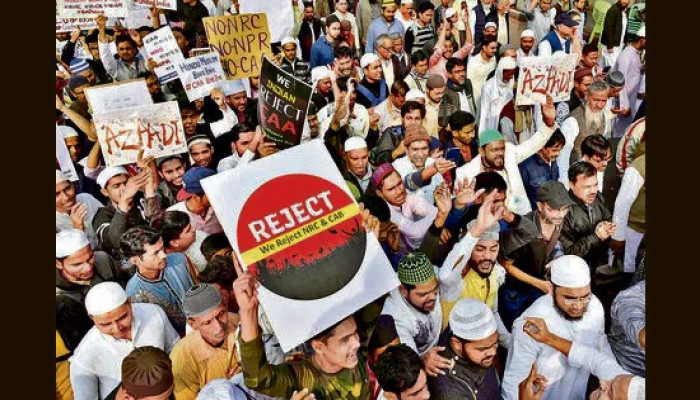CAA may not be within scope of judicial review, government tells SC
- In Reports
- 07:34 PM, Oct 31, 2022
- Myind Staff
The Citizenship Amendment Act does not affect the legal, democratic or secular rights of Indian citizens, the Union government told the Supreme Court on Sunday. The government said that CAA does not affect the existing regime for obtaining Indian citizenship, and legal migration, on the basis of valid documents and visa, continues to be permissible from all countries, thus its legality may not be within the scope of judicial review.
Submitting its affidavit in response to a clutch of public interest litigations (PILs) that would come up for hearing in the top court on Monday, the government asserted that issues concerning the sovereign plenary power of parliament, especially in regard to citizenship, cannot be questioned by way of filing PILs.
Urging the top court to dismiss the pleas, the government said in its affidavit that the Act “does not in any way encourage illegal migration into Assam” and termed it an “unfounded…apprehension”.
“It is submitted that the existing regime for obtaining citizenship of India by foreigners of any country is untouched by the CAA and remains the same. It is submitted that the legal migration, on the basis of valid documents and visa, continues to be permissible from all countries of the world including from the three specified countries”, the government said.
According to the affidavit, the power of exclusion of immigrants is an incident of sovereignty belonging to a duly constituted nation-state and immigration policy. The policy, it added, has an impact on the foreign policy of a State and by extension, affects its security apparatus and would, therefore, fall squarely within the domain of parliament.
“In matters concerning immigration policy and citizenship in particular, it is the executive policy of the sovereign manifested by competent legislation, which would govern the decision-making. It is submitted that the legislative policies in this regard are designedly entrusted exclusively to elected representatives (to be carried out as per the procedure of legislation established by law),” said the government.
The Supreme Court is scheduled to take up the petitions on Monday.
Explaining its stand, the government said that Article 6 of the Constitution deems all migrants in India from Pakistan (including present-day Bangladesh) as citizens of India if such persons or their parents or grandparents were born in undivided India or such persons had migrated into India before 19th July 1948. If such persons had migrated after this date and got registered before a competent officer and had been resident in India for at least six months before the date of registration, then such persons were also deemed to be Indian citizens.
Image source: Hindustan Times







Comments